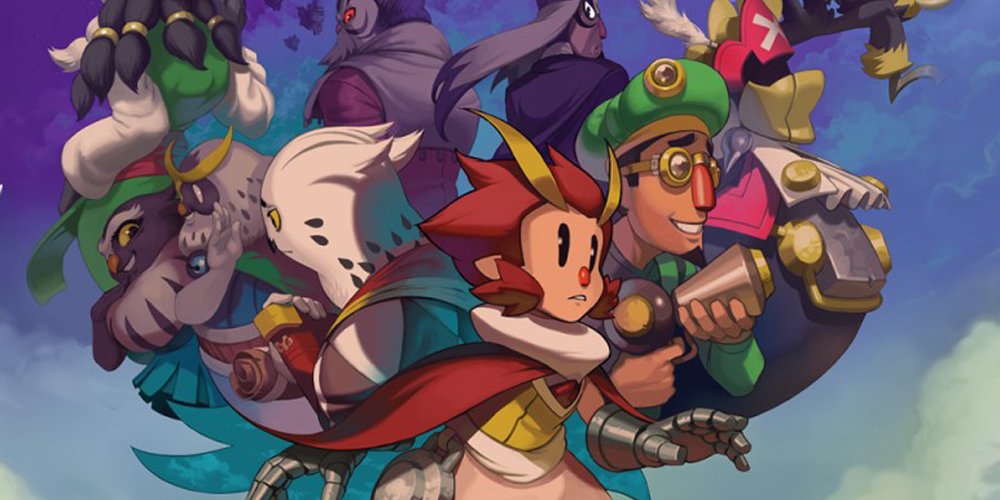Make room for this one on your Switch
At first it was exciting to see so many games come to the Switch eShop every week. Now it’s getting ridiculous.
Just this month, Celeste, Dandara, Space Dave, Old Man’s Journey, Pac-Man CE 2 Plus, and Owlboy have all been competing for my time, and choosing one over the other at any given moment hasn’t been easy. They all offer the player very different emotional rewards, but they are all genuine and worthwhile. Comparing them to each other is like comparing your best friends and trying to decide which one you value more. One may be funnier than the others, one may be smarter, one may be a better listener, etc., but they all care about you the same amount, so how can you pick just one?
I don’t claim to have the answer to that question, but I can tell you which one of these six games values your friendship, and the concept of friendship in general, more than all the others. You guessed it folks! It’s Owlboy. The only thing I don’t like about this game is that every time I boot it up, I see the name of its developers (D-Pad Studio) and then get sad that the Switch Joy-Con don’t have conventional d-pads. Then I start playing the game, and everything is good again.
One of the reasons Owlboy nails the feeling of friendship so well is that it was made by a small group of friends over the course of more than eight years. The group was constantly turning to itself for strength and inspiration, relying on each other for hope and confidence during those times when it seemed the game would never see the light of day.
At its core, Owlboy is a coming-of-age story about overcoming your insecurities and limitations by allying with the people who believe in you, and in turn, learning to believe in yourself. You know how Mega Man beats up his former peers and then takes their powers? Owlboy lets you do something similar, but instead of pounding on his pals, he picks them up with his feet and takes them along with him on his journey. This allows for some interesting mechanical opportunities, but more importantly, it reinforces the interconnection between the game’s story and its gameplay on a constant basis. It’s incredible how heavy the game gets at times given how light it is on the surface, both literally and figuratively.
Otus, the game’s titular owlboy, is constantly floating away from just about everybody and everything. Anxious, mute, and subject to near-constant emotional abuse from his mentor, he’s physically and emotionally detached from most things in his world. Of course, that makes things easier for him in some ways, but harder in others. When he finally does find a few people he can anchor himself to, the benefits always come with their own sets of risks. It’s facing these risks, and overcoming the fears they inspire, that helps Otus to discover who he really is, and how much he really cares about those close to him.

In fact, if I had to use one word to describe Owlboy, I’d probably pick “careful,” in that it is absolutely full to the brim with care. Every inch of this game, from the writing to the art to the music, feels so deeply cared about. As a result, they make you the player feel cared about all the time. Even when it gets sad or stressful, Owlboy feels like purring kittens lying on your chest as you drink hot chocolate in front of a warm fireplace. When a game loves you this much, even the tough times feel good in their own way.
Most longtime Nintendo fans are no strangers to tough times. Through thick and thin, they’ve stuck by their favorite mascots with the kind of loyalty that’s usually reserved only for family members. This devotion sometimes brings with it a kind of monogamist (or should I say monogame-ist) perspective towards their tastes along with it. They only buy games from Nintendo, because Nintendo is the only company they’ve ever bought games from, and therefore, Nintendo is the only brand they trust.
If you are one of these people, I hope you are willing to take a chance on Owlboy. It’s a game that I’m sure Nintendo would be proud to call one of their own.








